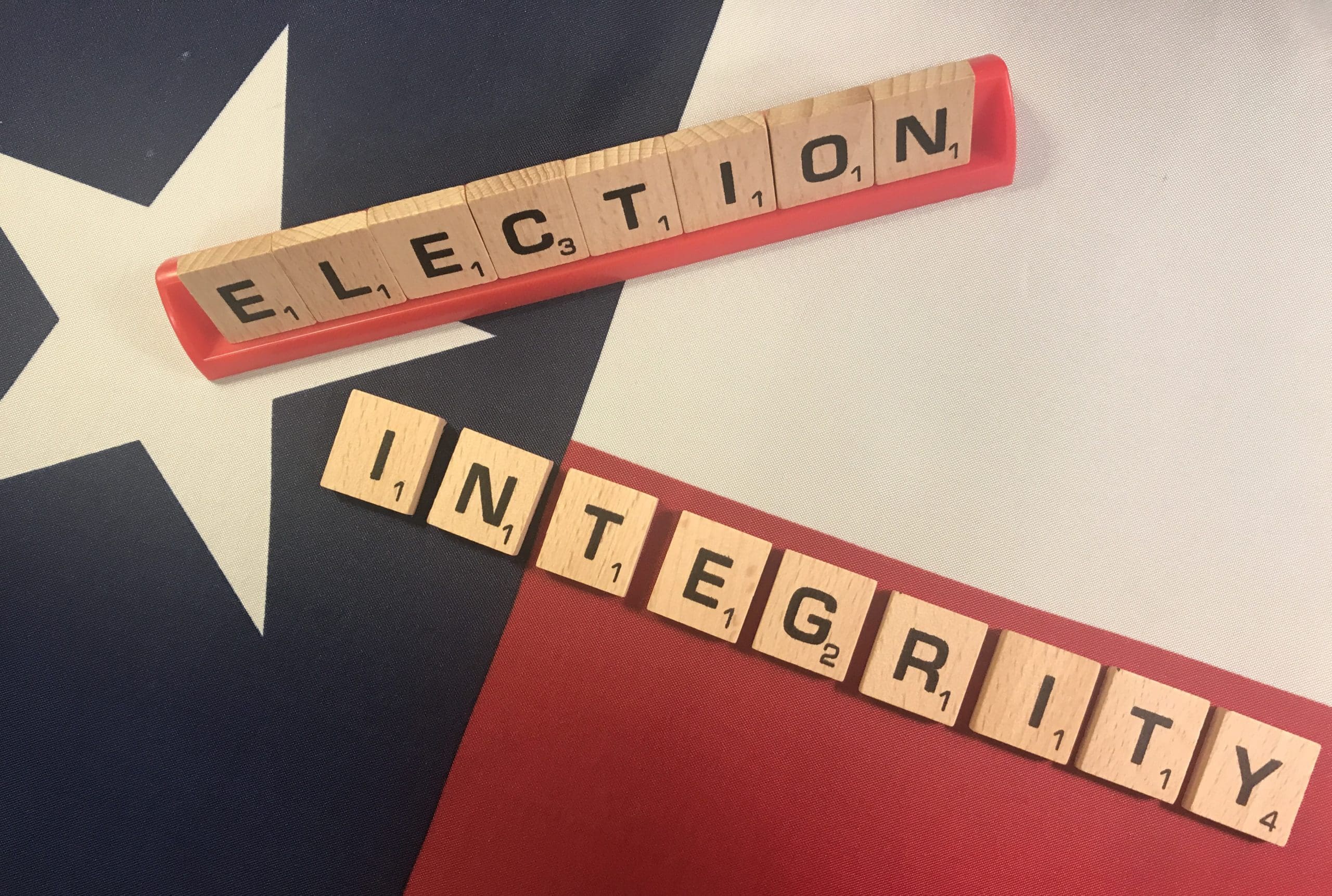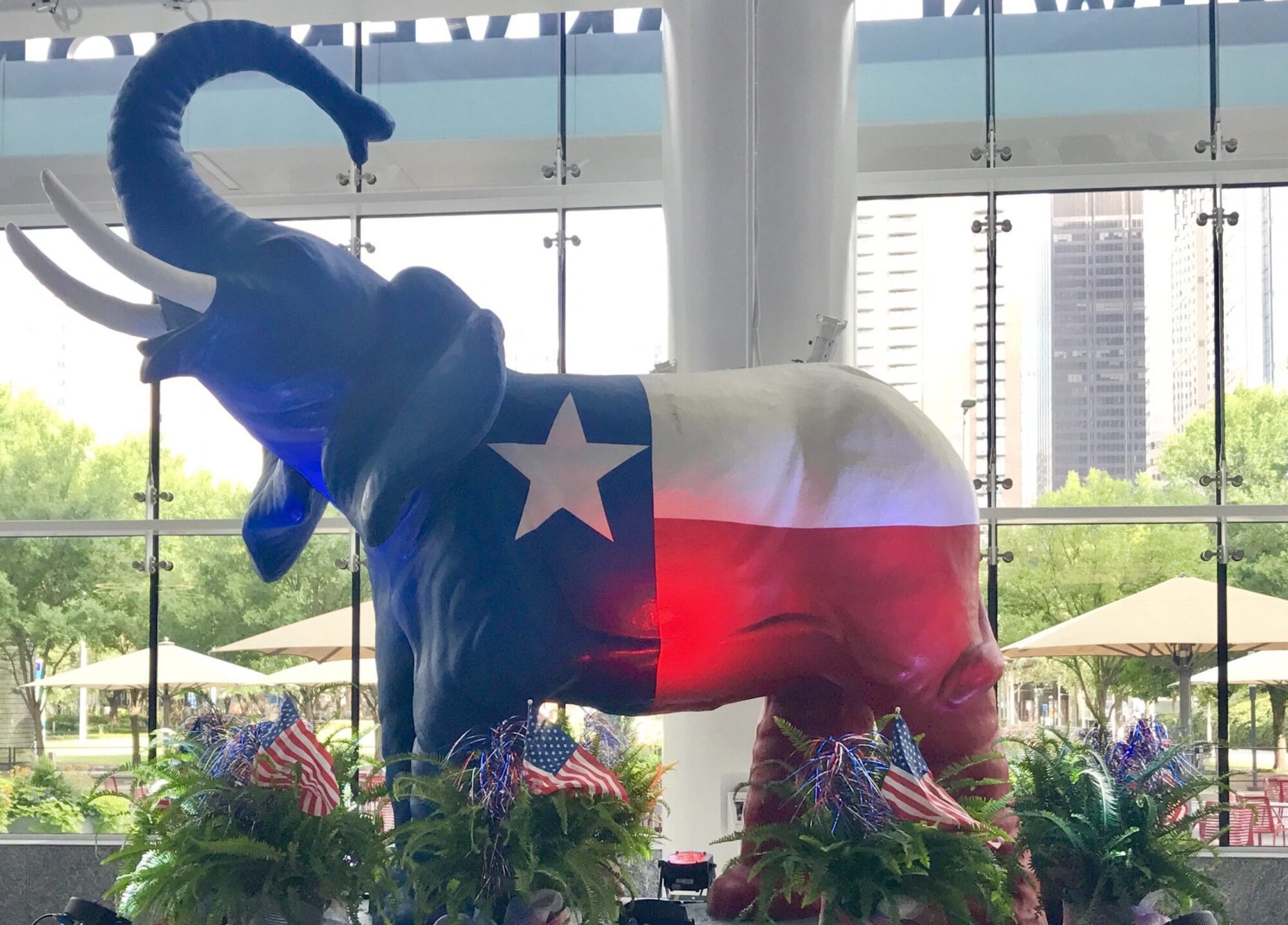UPDATED July 8 to include information on bills filed.
As Texas lawmakers return to Austin this week to take care of unfinished business from the regular legislative session, a top agenda item for the special session starting July 8 is election integrity.
Advocates see this as a second chance for the Texas Legislature to overcome Democrat opposition and do what other Republican-run states were able to accomplish this year: enact meaningful reforms that restore voters’ confidence their elections are secure and their votes count.
Election integrity was a legislative priority for grassroots conservatives, the Texas GOP, and Republican Gov. Greg Abbott this session after lawmakers failed to pass proposed reforms in 2019.
The Republican-controlled Legislature sent a handful of key election integrity bills to the governor’s desk, but they failed to pass advocates’ top-priority comprehensive election reform before the 140-day regular session ended on May 31.
Yet two other Republican-run states with records of enacting strong election integrity laws—Florida and Georgia—each passed comprehensive election reform bills this year, within much shorter legislative sessions.
Florida and Georgia
Georgia’s Republican-controlled Legislature passed a comprehensive election reform bill over the course of 40 legislative days, between January 15 and March 31. Republican Gov. Brian Kemp signed Senate Bill 202, known as the Georgia Election Integrity Act of 2021, on March 25.
Florida’s Republican-run Legislature passed a comprehensive election reform bill during a 60-day legislative session held March 2-April 30. Republican Gov. Ron DeSantis signed Senate Bill 90 into law on May 6.
Even with solid election laws already on the books, officials in Florida and Georgia took proactive steps to bolster voters’ confidence with new laws to keep voting accessible, efficient, secure, and transparent—in their words, making it “easy to vote and hard to cheat.”
Both state legislatures passed bills that:
- require voter ID numbers for mail-in ballots (like Texas, both states already require ID for in-person voting);
- prohibit unsolicited distribution of mail ballots;
- ban ballot-harvesting activities by political operatives;
- regulate mail-ballot drop boxes; and
- keep outside cash from influencing how elections are run (Texas passed a similar “Zuck Bucks” ban).
Georgia also added provisions to restrict “emergency” election rules and waivers, prohibit emergency rules that conflict with current election law, and sanction election officials who fail to follow the law.
In this special session, the same Texas lawmakers who failed to pass priority legislation during the regular session will again be in charge of following through on reforms to make voting more secure.
Will they follow the examples of Florida and Georgia on specific measures, or enjoy the same success in getting a comprehensive reform bill passed?
What Will Texas Do?
On Monday, three dozen Democrat lawmakers submitted a list of demands to House Speaker Dade Phelan, detailing how the House should operate during the special session, with several specific demands targeting election integrity bills.
The letter is seen as renewing House Democrats’ threat to again break quorum in order to avoid voting on election bills they don’t like. At least 51 representatives would need to flee to bust the two-thirds (100-member) quorum required to conduct House business.
On Wednesday, Abbott released his special session call just one day ahead of the session’s Thursday opening. Election integrity was near the top of his list of agenda items.
Lt. Gov. Dan Patrick’s office responded that the Texas Senate is “ready to pass all of the legislation” on Abbott’s special session call, “starting with [Senate Bill 1]—Election Security.”
“Hearings will begin on Saturday,” Patrick added.
I will gavel in the Texas Senate tomorrow morning at 10 AM. We are ready to pass all of the legislation on @GovAbbott’s Special Session call starting with #SB1 — Election Security. Hearings will begin Saturday. #txlege
— Office of the Lieutenant Governor Dan Patrick (@LtGovTX) July 7, 2021
Wednesday evening, State Rep. Andrew Murr (R–Junction) filed House Bill 3, a revised version of the Election Integrity Protection Act of 2021 filed by State Rep. Briscoe Cain (R–Deer Park) during the regular session. HB 3 bans paid vote harvesting and unsolicited distribution of mail-ballot applications, and requires voters to provide an ID number on mail-in ballots and applications in line with rules for in-person voting (a provision not included in Cain’s original bill).
As anticipated, HB 3 and other House election bills were referred Thursday to Phelan’s newly appointed Select Committee on Constitutional Rights and Remedies, not the House Elections Committee chaired by Cain.
On Thursday morning, State Sen. Bryan Hughes (R–Mineola) filed Senate Bill 1, but the text of the bill was not immediately available. Hughes also authored the Senate’s comprehensive “omnibus” election integrity bill during the regular session, which differed significantly from the House omnibus bill. SB 1 was referred to Hughes’ Senate State Affairs Committee.
A recent poll found 35 percent of registered voters think Texas voting rules should be more strict, 29 percent say they should be less strict, and 26 percent say the rules should be left as they are.





